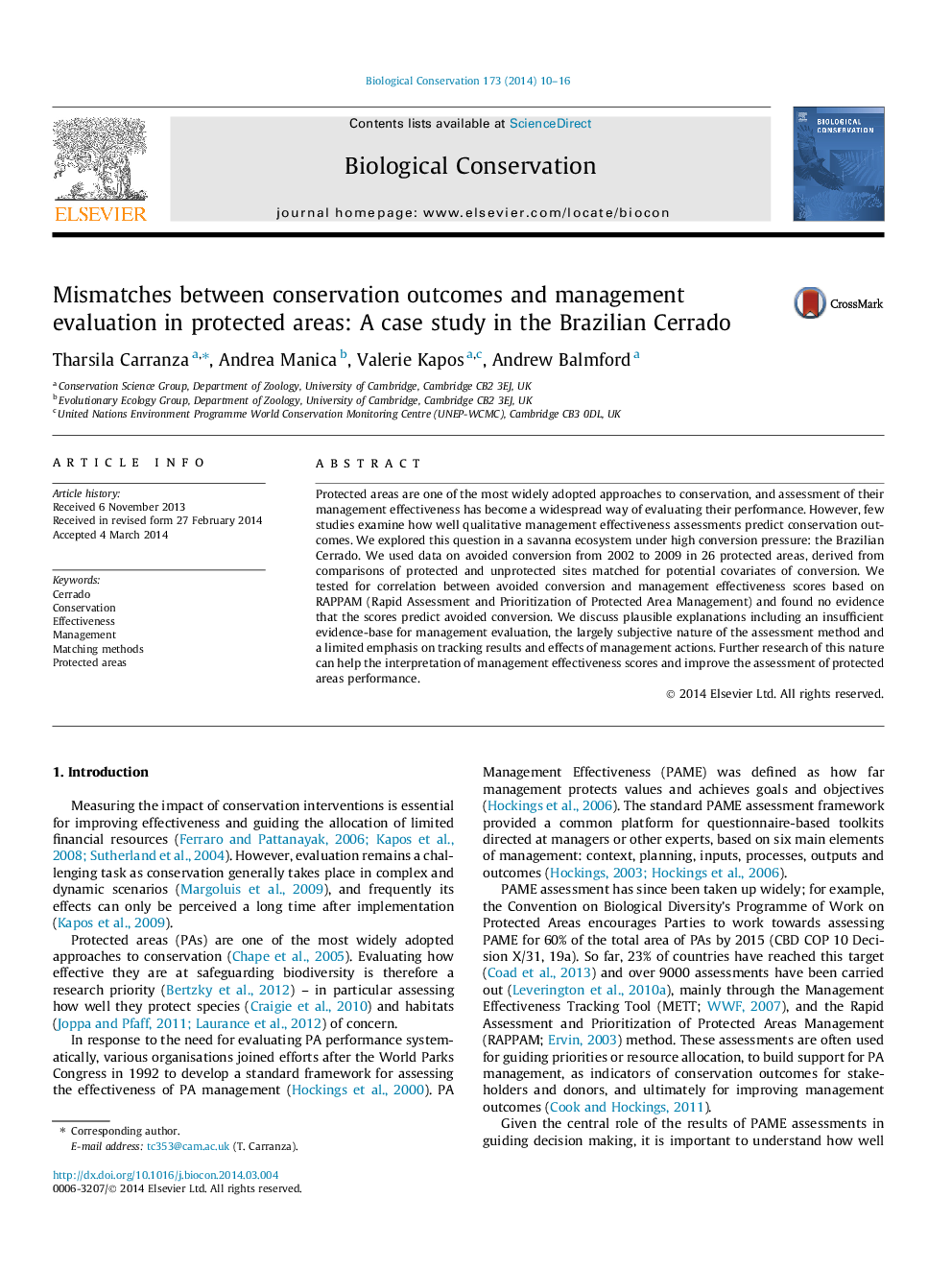| Article ID | Journal | Published Year | Pages | File Type |
|---|---|---|---|---|
| 6299537 | Biological Conservation | 2014 | 7 Pages |
Abstract
Protected areas are one of the most widely adopted approaches to conservation, and assessment of their management effectiveness has become a widespread way of evaluating their performance. However, few studies examine how well qualitative management effectiveness assessments predict conservation outcomes. We explored this question in a savanna ecosystem under high conversion pressure: the Brazilian Cerrado. We used data on avoided conversion from 2002 to 2009 in 26 protected areas, derived from comparisons of protected and unprotected sites matched for potential covariates of conversion. We tested for correlation between avoided conversion and management effectiveness scores based on RAPPAM (Rapid Assessment and Prioritization of Protected Area Management) and found no evidence that the scores predict avoided conversion. We discuss plausible explanations including an insufficient evidence-base for management evaluation, the largely subjective nature of the assessment method and a limited emphasis on tracking results and effects of management actions. Further research of this nature can help the interpretation of management effectiveness scores and improve the assessment of protected areas performance.
Related Topics
Life Sciences
Agricultural and Biological Sciences
Ecology, Evolution, Behavior and Systematics
Authors
Tharsila Carranza, Andrea Manica, Valerie Kapos, Andrew Balmford,
